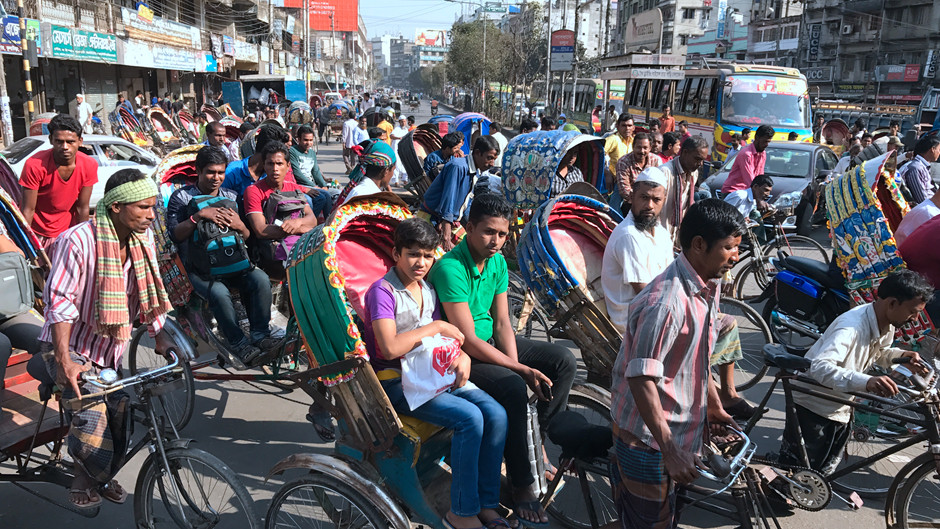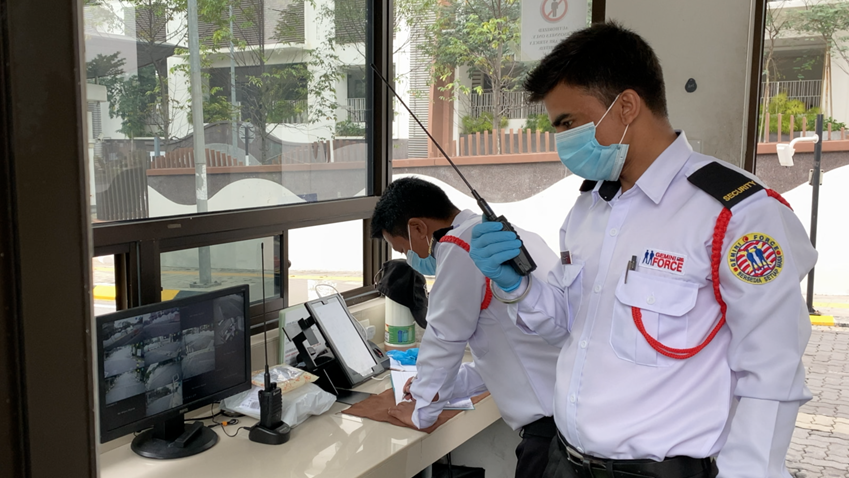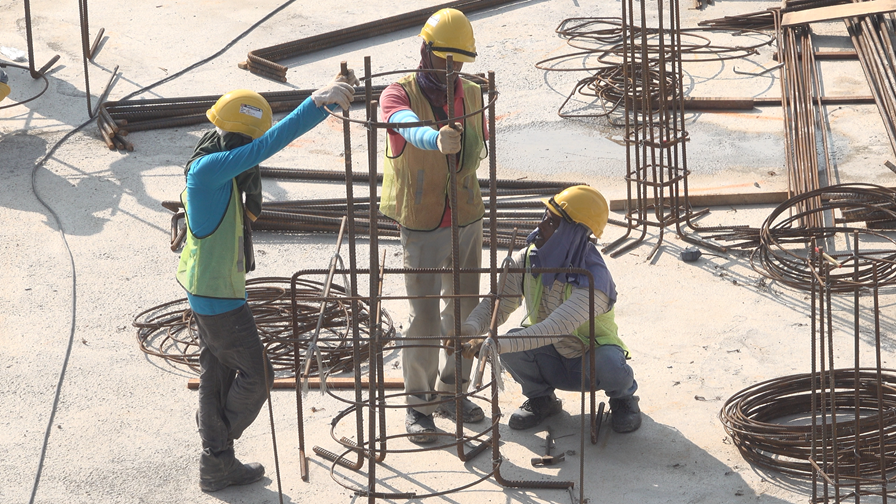02:14

In shopping malls and office blocks, housing areas, and apartment buildings, security guards from Nepal keep Malaysians safe and secure. In fact, they are the only foreign nationality permitted to work as security guards in Malaysia.
On construction sites, in factories and plantations, the bulk of Malaysia workers these days are from countries such as Bangladesh, Indonesia, Myanmar and Nepal, with Malaysians shunning to so-called 3D jobs – dirty, difficult and dangerous.
The migrants' remittances – the money they send home – is vital for their families, and their home countries' economies, more so now with many migrants losing their jobs overseas, and their own economies taking a hit from the pandemic.
Bharat Khadka has been working as a security guard in Kuala Lumpur for the past five years. He sends home around 340 U.S. dollars a month – the bulk of his income, and aside from using it for household expenses, as well as tries to save most of that. But not anymore.
His brother lost his job in India during the pandemic and returned to Nepal.
"COVID-19 has caused big problems. I'm the only one working, supporting my brother, his wife and his three kids, my parents, my wife and child. My income from here is vital," he says.

Nepalis are the only foreigners allowed to work as security guards in Malaysia. Photo/Rian Maelzer
Nepalis are the only foreigners allowed to work as security guards in Malaysia. Photo/Rian Maelzer
A report by the Asian Development Bank estimates that globally, remittances from migrant workers are likely to fall by more than 100 billion U.S. dollars this year, with half that drop being seen in developing Asia.
Economist Aiko Kikkawa Takenaka authored the report.
"There's great concern among those migrant origin countries and especially among the households that depend on remittances as a stable source of income paying for food and electricity to education to medical care," she says.
The biggest drop in remittances is from workers in the Gulf countries, which are expected to drop by around 20 billion U.S. dollars, with another 22 billion U.S. dollars drop in remittances to Asia from migrant workers in the U.S. Countries such as Nepal, Bangladesh, Pakistan, and Tajikistan could see remittances tumble 25 percent.
In Malaysia, foreign workers are supposed to be the first to be laid off when job cuts have to be made. The pandemic, and outbreaks among migrant workers, has caused the government and Malaysian people to rethink their reliance on foreign labor.
Malaysia's biggest wholesale produce market used to be dominated by workers from Myanmar. But Kuala Lumpur's municipal government has now barred foreigners from working there, a bitter blow to those who relied on that income.
To soften the impact, the government is allowing migrant workers who lose their jobs to seek other employment in the same sector. Still, untold thousands have returned home in recent months, with more waiting to do so.
The ADB's Takenaka says such a swift and sharp drop in remittances is unprecedented.
"With the global financial crisis of 2008 and 2009, the remittances drop by mere percent in the end, and some of the countries in Southeast Asia did not even experience a drop," she said. But at this point with the COVID-19 situations are different in the sense that it imposes unprecedented from the freeze of economic activity, not just at the host economy, but also at the origin economies."
She urges governments to ensure the welfare of migrant workers who are cut loose by their employers, providing humanitarian assistance as well, of course, like medical care.

The ADB says migrant labor is vital to many countries' economies. Photo/Rian Maelzer
The ADB says migrant labor is vital to many countries' economies. Photo/Rian Maelzer
Malaysia has been making sure that all foreign workers who test positive for COVID-19 – including undocumented migrants – are all isolated and treated in hospitals just like Malaysians would be.
Takenaka urges people in the host countries to recognize the migrants' vital contribution to their economies.
Governments, she said, "should make effort to retain those workers because what we saw in the global financial crisis is that many people many migrants returned upon the completion or the termination of the contracts. But as soon as the economy picked up, the employer was pleading with them to come back because they need them to restart their economies."
Malaysia has imposed a freeze on bringing in any more migrant workers until the end of the year and has been talking up the idea of locals filling many jobs in sectors including manufacturing and security.
Nepalis, though, have built a reputation on being reliable and diligent security guards. And people like Bharat hope that will guarantee them a job here for many years to come.
"I work every day, no days off, to earn money to send home. I hope next year there is no more COVID-19, so my brother will find work in India again, and I will be able to save money."